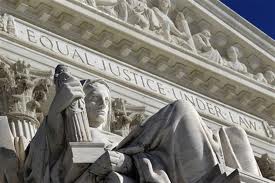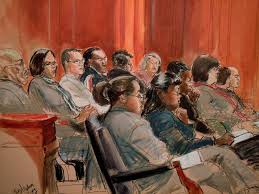|
Friends:
I sat down at the bar at Lawyers Club the other night with my good friend and Past President Hal Daniel, the sole endeavor in mind being to enjoy a cup of cheer together following a long day at the office. After we ordered our “usuals” and eagerly awaited Kenny’s expert renditions, instead of the usual “How are you doing?, Hal asked me the following question: “What have you done today to make someone else’s life better?” Intriguing. What followed was a genuine reflection of my day and Hal’s to see if we could honestly lay claim to such a noble endeavor as making someone’s life better rather than just barely making it through a hard workday unscathed and still standing and breathing.
The question brought to mind one of my favorite stories about one of my heroes, Justice Robert Benham. My service as President of the State Bar fortunately provided me many opportunities to spend time with Justice Benham and hear many wonderful stories about his life growing up in Bartow County. Before I share this wonderful story with you, let me give you a little background on the Honorable Robert Benham as a reminder and to set the stage.
Justice Benham distinguished himself as the first African American to win statewide election in Georgia since Reconstruction. In 1989, Justice Benham was further distinguished as the first African American to serve on the Supreme Court of Georgia, following his appointment by Governor Harris.
He also made history both as the first African-American to establish a law practice in his hometown of Cartersville. In what can only be described as something straight out of a movie, when Justice Benham would walk down the street in Cartersville to go to the Bartow County Courthouse, many fellow African Americans would come out of their homes and out of their places of work to follow him down the street. The shouts of “Attorney Benham’s going to court,” “Mr. Benham’s going to court” could be heard as they followed their hero, then “Attorney Benham”, to the courthouse, because they knew Attorney Benham was going there to stand up for the little guy, the underdog, which they, undoubtedly, felt they also were. Attorney Benham became for many African Americans the embodiment of justice, and although he was walking to court to represent one specific accused person, dozens of other citizens felt he was also representing them.
Justice Benham’s first lesson of service to others probably came at the hands of his mother, who insisted that he shine shoes at the local barber shop. His mother had this view that if you ever plan to lead people that you must be willing to serve them first and there’s no more humbling experience than being down on your knees shining somebody’s shoes. As she said, “If you do that you won’t be full of yourself.”
So Justice Benham as a little boy, with his brothers, shined shoes at Bob Cagle’s barber shop. As I have heard Justice Benham say, “the American Dream is that a black child from Cartersville who shined shoes in a barber shop can grow up and shine in the Halls of Justice.”
Which brings me to the story that Hal’s question to me that night at Lawyers Club brought to mind. In the Kennesaw State University Department of History and Philosophy Summer Hill Oral History Project, Justice Benham described his family’s origins for insistence on service to others. “Family meals were not optional, they were required. A blessing was said at every meal and the children, my two brothers and I, were required to say a Bible verse. We could not say the same Bible verse anybody at the table said and we could not use the same Bible verse during that week, and that was required. There was no television on, and we were the only family in the neighborhood who had a television, but you did not watch TV while you were at the family meal and you engaged in discussion. Daddy would always ask, “Well, what are you going to do today?” And then we knew what was coming next, “What are you going to do today for somebody else?” That was at every breakfast.”
“What are you going to do today for somebody else?” Quite a lesson that Justice Benham never forgot. Years later, Dr. Martin Luther King, Jr. would say that life’s most persistent question is “What are you doing for others.” Life’s most persistent question has been the hallmark of Justice Benham’s life.
One of the hallmarks of the profession of law is a recognition that along with the privilege to practice law comes a duty to subordinate financial reward to social responsibility. We will celebrate many of our fellow lawyers who have done just that by offering themselves to public service through service on the bench at our cocktail meeting this month on Wednesday, February 18. Please come and thank our honored judiciary for their service. You won’t want to miss it.
Hal’s question was a good one to ponder and so I ask it of you, my fellow Lawyers Club of Atlanta members: What have you done today to make someone else’s life better?’
Let’s have a drink together soon at the club to discuss.
Cheers,
Robin Frazer Clark
Robin Frazer Clark
President 2014-15 |
 Atlanta Injury Lawyer Blog
Atlanta Injury Lawyer Blog























